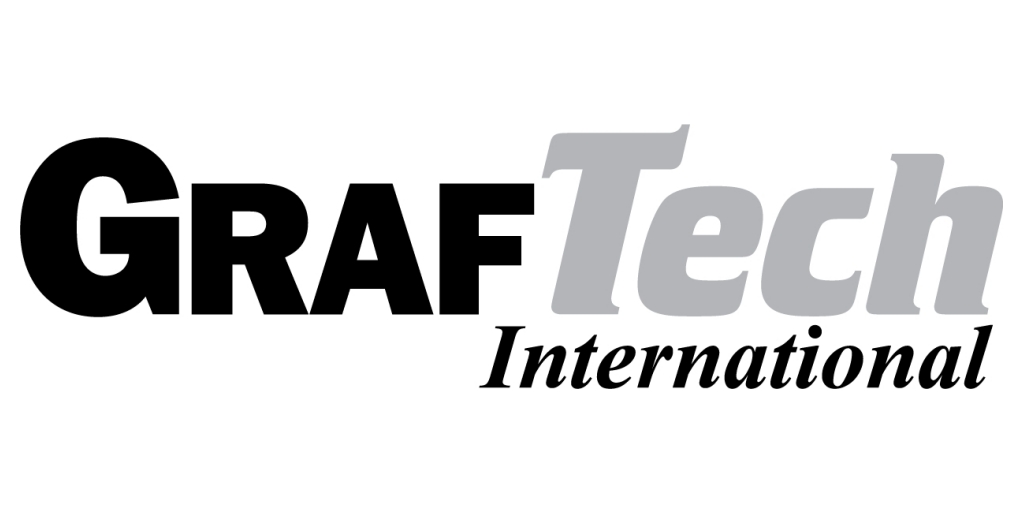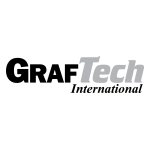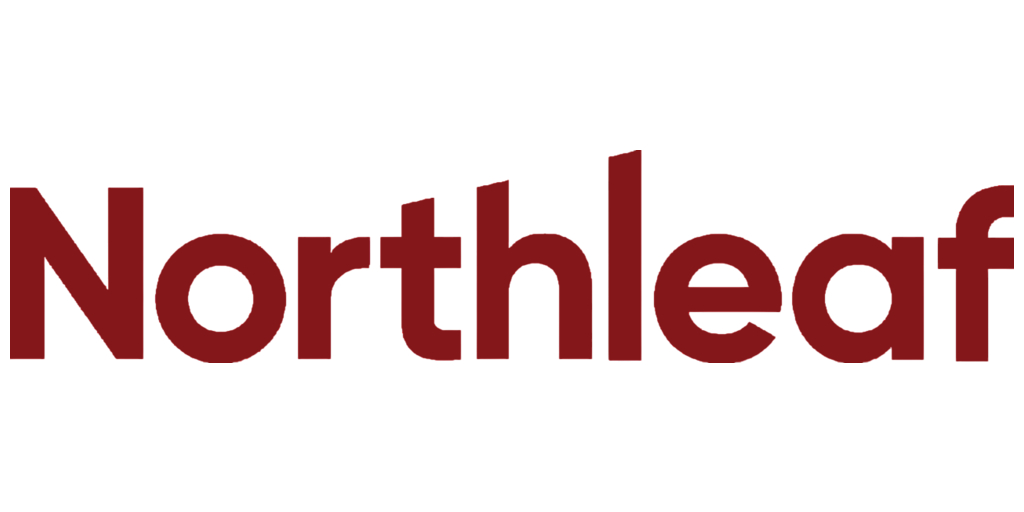Solid Execution Leads to Sequential Improvement in Key Metrics
BROOKLYN HEIGHTS, Ohio–(BUSINESS WIRE)–GrafTech International Ltd. (NYSE: EAF) (“GrafTech,” the “Company,” “we,” or “our”) today announced unaudited financial results for the quarter and six months ended June 30, 2024.
Second Quarter 2024 Summary
- Significant cost improvement reflects actions to aggressively address key elements of our cost structure
- Sequential improvement in sales volume of 6% and capacity utilization increase to 60%
- Net sales of $137 million
- Net loss of $15 million, or $0.06 per share(1)
- Adjusted EBITDA(2) of $14 million
- Net cash used in operating activities of $37 million and adjusted free cash flow(2) of negative $44 million
CEO Comments
“We continue to successfully execute our stated initiatives, which drove sequential improvement in key metrics for the quarter,” said Timothy Flanagan, Chief Executive Officer and President. “Our actions to aggressively address our cost structure led to a sequential improvement in cash costs on a per metric ton basis, as well as an 18% improvement compared to the second quarter of 2023. Our significant enhancement of our customer engagement efforts and focus on our customer value proposition contributed to a 6% sequential improvement in sales volume and supported our ability to increase capacity utilization. This company-wide emphasis on managing what is within our control is critical to our ability to navigate through the ongoing weakness in the commercial environment and preserve our ability to capitalize on long-term growth opportunities and deliver shareholder value.”
Second Quarter 2024 Financial Performance
|
(dollars in thousands, except per share amounts) |
|
|
Six Months Ended |
|||||||||||||
|
|
|
June 30, |
||||||||||||||
|
Q2 2024 |
Q1 2024 |
Q2 2023 |
|
|
2024 |
|
|
2023 |
|
|||||||
|
Net sales |
$ |
137,327 |
|
$ |
136,584 |
|
$ |
185,561 |
|
|
$ |
273,911 |
|
$ |
324,363 |
|
|
Net loss |
$ |
(14,752 |
) |
$ |
(30,869 |
) |
$ |
(7,851 |
) |
|
$ |
(45,621 |
) |
$ |
(15,220 |
) |
|
Loss per share(1) |
$ |
(0.06 |
) |
$ |
(0.12 |
) |
$ |
(0.03 |
) |
|
$ |
(0.18 |
) |
$ |
(0.06 |
) |
|
Net cash (used in) provided by operating activities |
$ |
(36,855 |
) |
$ |
(530 |
) |
$ |
(9,024 |
) |
|
$ |
(37,385 |
) |
$ |
15,774 |
|
|
Adjusted net loss(2) |
$ |
(13,564 |
) |
$ |
(25,161 |
) |
$ |
(5,768 |
) |
|
$ |
(38,725 |
) |
$ |
(11,317 |
) |
|
Adjusted loss per share(1)(2) |
$ |
(0.05 |
) |
$ |
(0.10 |
) |
$ |
(0.02 |
) |
|
$ |
(0.15 |
) |
$ |
(0.04 |
) |
|
Adjusted EBITDA(2) |
$ |
14,493 |
|
$ |
194 |
|
$ |
26,022 |
|
|
$ |
14,687 |
|
$ |
41,137 |
|
|
Adjusted free cash flow(2) |
$ |
(43,834 |
) |
$ |
(11,041 |
) |
$ |
281 |
|
|
$ |
(54,875 |
) |
$ |
3,438 |
|
Net sales for the second quarter of 2024 were $137 million, a decrease of 26% compared to $186 million in the second quarter of 2023. The decline primarily reflected a decrease in the weighted-average realized price for volume derived from short-term agreements and spot sales (“non-LTA”) and a shift in the mix of our business from volume derived from our take-or-pay agreements that had initial terms of three-to-five years (“LTA”) to non-LTA volume.
Net loss for the second quarter of 2024 was $15 million, or $0.06 per share, compared to a net loss of $8 million, or $0.03 per share, in the second quarter of 2023.
Adjusted EBITDA(2) was $14 million in the second quarter of 2024, compared to $26 million in the second quarter of 2023. The decline primarily reflected lower weighted-average realized prices and a shift in the mix of our business from LTA volume to non-LTA volume. These factors were partially offset by an 18% reduction in cash costs on a per metric ton (“MT”) basis for the second quarter of 2024, compared to the same period in 2023. In addition, adjusted EBITDA(2) for the second quarter of 2024 included a $9 million benefit related to the final award in a long-standing LTA arbitration. This represented a reimbursement of the Company’s legal fees and other related expenses and was recorded as a reduction in selling and administrative expenses for the second quarter of 2024.
In the second quarter of 2024, net cash used in operating activities was $37 million and adjusted free cash flow(2) was a cash usage of $44 million, including a $34 million semi-annual interest payment on the Company’s senior secured notes.
Operational and Commercial Update
|
Key operating metrics |
|
|
|
|
Six Months Ended |
||||||
|
|
|
|
|
|
June 30, |
||||||
|
(in thousands, except percentages) |
Q2 2024 |
Q1 2024 |
Q2 2023 |
|
2024 |
|
2023 |
|
|||
|
Sales volume (MT) |
25.5 |
|
24.1 |
|
26.4 |
|
|
49.6 |
|
43.3 |
|
|
Production volume (MT)(3) |
26.8 |
|
26.0 |
|
25.2 |
|
|
52.8 |
|
41.0 |
|
|
Production capacity (MT)(4)(5) |
45.0 |
|
45.0 |
|
51.0 |
|
|
90.0 |
|
102.0 |
|
|
Capacity utilization(6) |
60 |
% |
58 |
% |
49 |
% |
|
59 |
% |
40 |
% |
Sales volume for the second quarter of 2024 was 25.5 thousand MT, a decrease of 3% compared to the second quarter of 2023, consisting of 22.7 thousand MT of non-LTA volume and 2.8 thousand MT of LTA volume.
For the second quarter of 2024, the weighted-average realized price for our non-LTA volume was approximately $4,300 per MT, a decrease of 23% compared to the second quarter of 2023, with the decline reflecting the persistent challenges in the commercial environment. For our LTA volume, the weighted-average realized price was approximately $8,300 per MT for the second quarter of 2024.
Production volume was 26.8 thousand MT in the second quarter of 2024, an increase of 6% compared to the second quarter of 2023. We continue to proactively align our production volume with our evolving demand outlook.
The table of estimated shipments of graphite electrodes under existing LTAs has been updated as follows, reflecting our current expectations for the full year 2024:
|
|
|
2024 |
||
|
Estimated LTA volume (in thousands of MT) |
|
13 – 14 |
||
|
Estimated LTA revenue (in millions) |
|
$110 – $120(7) |
Capital Structure and Liquidity
As of June 30, 2024, we had liquidity of $232 million, consisting of cash and cash equivalents of $121 million and $111 million of availability under our revolving credit facility. As of June 30, 2024, we had gross debt(8) of $950 million and net debt(9) of approximately $829 million. We believe we continue to have adequate liquidity in 2024 to navigate the persistent challenges in the commercial environment.
Outlook
We expect demand for graphite electrodes in the near term will remain weak, reflecting persistent challenges in the commercial environment as steel industry production remains constrained by global economic uncertainty. Given these trends, challenging pricing dynamics have persisted in most regions. As a result, we remain selective in the commercial opportunities we choose to pursue. Sales volume in the third quarter of 2024 is expected to be broadly in line with sales volume for the second quarter of 2024 and we continue to expect a modest year-over-year improvement in sales volume for the full year.
We continue to expect a mid-teen percentage point decline in our full year 2024 cash cost of goods sold per MT compared to 2023. This significant improvement in our year-over-year cost structure reflects (1) the deliberate actions we have taken to reduce our fixed manufacturing costs, (2) the benefit of additional actions we are taking to reduce our variable costs and (3) the anticipated year-over-year improvement in our sales and production volume levels. In addition, we continue to closely manage our working capital levels and capital expenditures. We continue to anticipate our full-year 2024 capital expenditures will be in the range of $35 million to $40 million.
Longer term, we remain confident that the steel industry’s accelerating efforts to decarbonize will lead to increased adoption of the electric arc furnace method of steelmaking, driving long-term demand growth for graphite electrodes. We also anticipate the demand for petroleum needle coke, the key raw material we use to produce graphite electrodes, to accelerate driven by its utilization in producing synthetic graphite for use in lithium-ion batteries for the growing electric vehicle market. We believe that the near-term actions we are taking, supported by an industry-leading position and our sustainable competitive advantages, including our substantial vertical integration into petroleum needle coke via our Seadrift facility, will optimally position GrafTech to benefit from that long-term growth.
Conference Call Information
In connection with this earnings release, you are invited to listen to our earnings call being held on July 26, 2024 at 10:00 a.m. (EDT). The webcast and accompanying slide presentation will be available on our investor relations website at: http://ir.graftech.com. The earnings call dial-in number is +1 (800) 717-1738 toll-free in North America or +1 (289) 514-5100 for overseas calls, conference ID: 40706. Archived replays of the conference call and webcast will be made available on our investor relations website at: http://ir.graftech.com. GrafTech also makes its complete financial reports that have been filed with the Securities and Exchange Commission (“SEC”) and other information available at: www.GrafTech.com. The information on our website is not part of this release or any report we file with or furnish to the SEC.
About GrafTech
GrafTech International Ltd. is a leading manufacturer of high-quality graphite electrode products essential to the production of electric arc furnace steel and other ferrous and non-ferrous metals. The Company has a competitive portfolio of low-cost, ultra-high power graphite electrode manufacturing facilities, with some of the highest capacity facilities in the world. We are the only large-scale graphite electrode producer that is substantially vertically integrated into petroleum needle coke, our key raw material for graphite electrode manufacturing. This unique position provides us with competitive advantages in product quality and cost.
|
________________________ |
||
|
(1) |
|
Loss per share represents diluted loss per share. Adjusted loss per share represents diluted adjusted loss per share. |
|
(2) |
|
A non-GAAP financial measure, see below for more information and reconciliations to the most directly comparable financial measures calculated and presented in accordance with accounting principles generally accepted in the United States of America (“GAAP”). |
|
(3) |
|
Production volume reflects graphite electrodes we produced during the period. |
|
(4) |
|
Production capacity reflects expected maximum production volume during the period depending on product mix and expected maintenance outage. Actual production may vary. |
|
(5) |
|
Includes graphite electrode facilities in Calais, France; Monterrey, Mexico; and Pamplona, Spain. While maintaining the capability to produce up to 28,000 MT of graphite electrodes and pins on an annual basis at our St. Marys, Pennsylvania facility, most production activities at St. Marys have been suspended. The wind down of these production activities was completed in the second quarter of 2024. Remaining activities at St. Marys are limited to machining graphite electrodes and pins sourced from our other plants. |
|
(6) |
|
Capacity utilization reflects production volume as a percentage of production capacity. |
|
(7) |
|
Estimated LTA revenue includes payments from customers that failed to meet certain obligations under their LTAs. |
|
(8) |
|
Gross debt reflects the notional value of our outstanding debt and excludes unamortized debt discount and issuance costs. |
|
(9) |
|
A non-GAAP financial measure, net debt is calculated as gross debt minus cash and cash equivalents (June 30, 2024 gross debt of $950 million less June 30, 2024 cash and cash equivalents of $121 million). |
Cautionary Note Regarding Forward-Looking Statements
This press release and related discussions may contain forward-looking statements within the meaning of the safe harbor provisions of the U.S. Private Securities Litigation Reform Act of 1995. Forward-looking statements reflect our current views with respect to, among other things, financial projections, plans and objectives of management for future operations, and future economic performance. Examples of forward-looking statements include, among others, statements we make regarding future estimated volume, pricing and revenue, anticipated levels of capital expenditures and cost of goods sold, anticipated reduction in our costs resulting from our cost rationalization initiatives and one-time costs of implementation and guidance relating to adjusted EBITDA and free cash flow. You can identify these forward-looking statements by the use of forward-looking words such as “will,” “may,” “plan,” “estimate,” “project,” “believe,” “anticipate,” “expect,” “foresee,” “intend,” “should,” “would,” “could,” “target,” “goal,” “continue to,” “positioned to,” “are confident,” or the negative versions of those words or other comparable words. Any forward-looking statements contained in this press release are based upon our historical performance and on our current plans, estimates and expectations considering information currently available to us. The inclusion of this forward-looking information should not be regarded as a representation by us that the future plans, estimates, or expectations contemplated by us will be achieved. Our expectations and targets are not predictions of actual performance and historically our performance has deviated, often significantly, from our expectations and targets. These forward-looking statements are subject to various risks and uncertainties and assumptions relating to our operations, financial results, financial condition, business, prospects, growth strategy and liquidity. Accordingly, there are or will be important factors that could cause our actual results to differ materially from those indicated in these statements. We believe that these factors include, but are not limited to: our dependence on the global steel industry generally and the electric arc furnace steel industry in particular; the cyclical nature of our business and the selling prices of our products, which may continue to decline in the future, and may lead to prolonged periods of reduced profitability and net losses or adversely impact liquidity; the sensitivity of our business and operating results to economic conditions, including any recession, and the possibility others may not be able to fulfill their obligations to us in a timely fashion or at all; the possibility that we may be unable to implement our business strategies in an effective manner; the possibility that global graphite electrode overcapacity may adversely affect graphite electrode prices; the competitiveness of the graphite electrode industry; our dependence on the supply of raw materials, including decant oil and petroleum needle coke, and disruptions in supply chains for these materials; our primary reliance on one facility in Monterrey, Mexico for the manufacturing of connecting pins; the cost of electric power and natural gas, particularly in Europe; our manufacturing operations are subject to hazards; the legal, compliance, economic, social and political risks associated with our substantial operations in multiple countries; the possibility that fluctuation of foreign currency exchange rates could materially harm our financial results; the possibility that our results of operations could further deteriorate if our manufacturing operations were substantially disrupted for an extended period, including as a result of equipment failure, climate change, regulatory issues, natural disasters, public health crises, such as a global pandemic, political crises or other catastrophic events; the risks and uncertainties associated with litigation, arbitration, and like disputes, including disputes related to contractual commitments; our dependence on third parties for certain construction, maintenance, engineering, transportation, warehousing and logistics services; the possibility that we are subject to information technology systems failures, cybersecurity attacks, network disruptions and breaches of data security; the possibility that we are unable to recruit or retain key management and plant operating personnel or successfully negotiate with the representatives of our employees, including labor unions; the sensitivity of long-lived assets on our balance sheet to changes in the market; our dependence on protecting our intellectual property and the possibility that third parties may claim that our products or processes infringe their intellectual property rights; the impact of inflation and our ability to mitigate the effect on our costs; the impact of macroeconomic and geopolitical events on our business, results of operations, financial condition and cash flows, and the disruptions and inefficiencies in our supply chain that may occur as a result of such events; the possibility that our indebtedness could limit our financial and operating activities or that our cash flows may not be sufficient to service our indebtedness; recent increases in benchmark interest rates and the fact that any future borrowings may subject us to interest rate risk; risks and uncertainties associated with our ability to access the capital and credit markets could adversely affect our results of operations, cash flows and financial condition; the possibility that disruptions in the capital and credit markets could adversely affect our customers and suppliers; the possibility that restrictive covenants in our financing agreements could restrict or limit our operations; changes in, or more stringent enforcement of, health, safety and environmental regulations applicable to our manufacturing operations and facilities; the possibility that the cash dividends on our common stock, which are currently suspended, will remain suspended and we may not pay cash dividends on our common stock in the future; and our ability to continue to meet NYSE continued listing standards.
These factors should not be construed as exhaustive and should be read in conjunction with the Risk Factors and other cautionary statements that are included in our most recent Annual Report on Form 10-K and other filings with the SEC. The forward-looking statements made in this press release relate only to events as of the date on which the statements are made. Except as required by law, we do not undertake any obligation to publicly update or review any forward-looking statement, whether as a result of new information, future developments or otherwise.
If one or more of these or other risks or uncertainties materialize, or if our underlying assumptions prove to be incorrect, our actual results may vary materially from what we may have expressed or implied by these forward-looking statements. We caution that you should not place undue reliance on any of our forward-looking statements. You should specifically consider the factors identified in this press release that could cause actual results to differ before making an investment decision to purchase our common stock. Furthermore, new risks and uncertainties arise from time to time, and it is impossible for us to predict those events or how they may affect us.
Non‑GAAP Financial Measures
In addition to providing results that are determined in accordance with GAAP, we have provided certain financial measures that are not in accordance with GAAP. EBITDA, adjusted EBITDA, adjusted net loss, adjusted loss per share, free cash flow, adjusted free cash flow, net debt and cash cost of goods sold per MT are non-GAAP financial measures.
We define EBITDA, a non‑GAAP financial measure, as net loss plus interest expense, minus interest income, plus income taxes and depreciation and amortization. We define adjusted EBITDA, a non-GAAP financial measure, as EBITDA adjusted by any pension and other post-employment benefit (“OPEB”) plan expenses or benefits, rationalization and rationalization-related expenses, non‑cash gains or losses from foreign currency remeasurement of non‑operating assets and liabilities in our foreign subsidiaries where the functional currency is the U.S. dollar, stock-based compensation expense, proxy contest expenses and Tax Receivable Agreement adjustments. Adjusted EBITDA is the primary metric used by our management and our Board of Directors to establish budgets and operational goals for managing our business and evaluating our performance.
We monitor adjusted EBITDA as a supplement to our GAAP measures, and believe it is useful to present to investors, because we believe that it facilitates evaluation of our period‑to‑period operating performance by eliminating items that are not operational in nature, allowing comparison of our recurring core business operating results over multiple periods unaffected by differences in capital structure, capital investment cycles and fixed asset base. In addition, we believe adjusted EBITDA and similar measures are widely used by investors, securities analysts, ratings agencies, and other parties in evaluating companies in our industry as a measure of financial performance and debt‑service capabilities.
Our use of adjusted EBITDA has limitations as an analytical tool, and you should not consider it in isolation or as a substitute for analysis of our results as reported under GAAP. Some of these limitations are:
- adjusted EBITDA does not reflect changes in, or cash requirements for, our working capital needs;
- adjusted EBITDA does not reflect our cash expenditures for capital equipment or other contractual commitments, including any capital expenditure requirements to augment or replace our capital assets;
- adjusted EBITDA does not reflect the interest expense or the cash requirements necessary to service interest or principal payments on our indebtedness;
- adjusted EBITDA does not reflect tax payments that may represent a reduction in cash available to us;
- adjusted EBITDA does not reflect expenses or benefits relating to our pension and OPEB plans;
- adjusted EBITDA does not reflect rationalization or rationalization-related expenses;
- adjusted EBITDA does not reflect the non‑cash gains or losses from foreign currency remeasurement of non‑operating assets and liabilities in our foreign subsidiaries where the functional currency is the U.S. dollar;
- adjusted EBITDA does not reflect stock-based compensation expense;
- adjusted EBITDA does not reflect proxy contest expenses;
- adjusted EBITDA does not reflect Tax Receivable Agreement adjustments; and
- other companies, including companies in our industry, may calculate EBITDA and adjusted EBITDA differently, which reduces its usefulness as a comparative measure.
We define adjusted net loss, a non‑GAAP financial measure, as net loss, excluding the items used to calculate adjusted EBITDA, less the tax effect of those adjustments. We define adjusted loss per share, a non‑GAAP financial measure, as adjusted net loss divided by the weighted average diluted common shares outstanding during the period. We believe adjusted net loss and adjusted loss per share are useful to present to investors because we believe that they assist investors’ understanding of the underlying operational profitability of the Company.
We define free cash flow, a non-GAAP financial measure, as net cash provided by operating activities less capital expenditures. We define adjusted free cash flow, a non-GAAP financial measure, as free cash flow adjusted by payments made or received from the settlement of interest rate swap contracts. We use free cash flow and adjusted free cash flow as critical measures in the evaluation of liquidity in conjunction with related GAAP amounts. We also use these measures when considering available cash, including for decision-making purposes related to dividends and discretionary investments. Further, these measures help management, the audit committee, and investors evaluate the Company’s ability to generate liquidity from operating activities.
Contacts
Michael Dillon
216-676-2000






